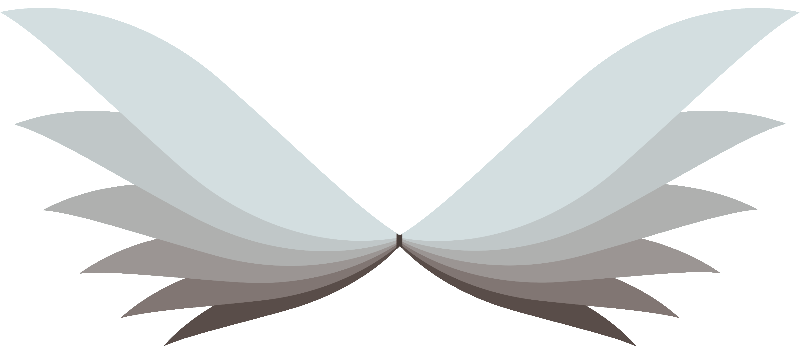
How to Nail
an Interview
How to Nail
an Interview
How to Nail an Interview (College and Career Tips)
Any suggestions? Contact Us!
Before the Interview:
Before the Interview:
- Research the Institution or Company:
- Learn about the college, university, or company you're interviewing with, including its values, mission, programs, culture, and recent news or developments.
- Understand the Role or Program:
- Familiarize yourself with the specific role, program, or position you're applying for, including the responsibilities, requirements, and expectations.
- Review Your Resume or Application Materials:
- Refresh your memory on the information included in your resume, application, or portfolio, and be prepared to discuss your experiences, skills, and achievements in detail.
- Prepare Answers to Common Questions:
- Anticipate common interview questions related to your background, experiences, strengths, weaknesses, goals, and interest in the institution or company, and practice your responses. Have a 30-second “Tell me about yourself” response prepared.
- Practice Interviewing:
- Conduct mock interviews with friends, family members, or mentors to practice your responses, refine your communication skills, and build confidence.
- Dress Appropriately:
- Dress professionally and appropriately for the interview, taking into account the culture and expectations of the institution or company. ( Even if it is over Zoom! )
- Arrive Early:
- Plan to arrive early for the interview to allow time for unexpected delays and to demonstrate punctuality and professionalism.
- Make a Strong First Impression:
- Greet the interviewer with a firm handshake, maintain eye contact, and exude confidence and enthusiasm from the start.
- Listen Carefully:
- Listen actively to the interviewer's questions and prompts, and take time to think before responding to ensure that your answers are thoughtful and relevant.
- Provide Specific Examples:
- Support your responses with specific examples, anecdotes, and achievements from your experiences, demonstrating your skills, qualifications, and fit for the role or program.
- Ask Questions:
- Prepare thoughtful questions to ask the interviewer about the institution, company, role, or program, demonstrating your interest and curiosity.
- Showcase Your Passion and Personality:
- Let your passion, enthusiasm, and personality shine through during the interview, allowing the interviewer to see the unique qualities and attributes you would bring to the role or program.
- Send a Thank-You Note:
- Send a personalized thank-you email or note to the interviewer(s) expressing your appreciation for the opportunity to interview and reiterating your interest in the role or program. Dos in the next 24 hours of the interview.
- Reflect on Your Performance:
- Reflect on your interview performance, identifying areas of strength and areas for improvement, and use this feedback to refine your interview skills for future opportunities.
- Follow Up Appropriately:
- Follow up with the interviewer or admissions office as necessary to inquire about the next steps, timelines, or additional information, demonstrating your continued interest and professionalism.
- Research the Institution or Company:
- Learn about the college, university, or company you're interviewing with, including its values, mission, programs, culture, and recent news or developments.
- Understand the Role or Program:
- Familiarize yourself with the specific role, program, or position you're applying for, including the responsibilities, requirements, and expectations.
- Review Your Resume or Application Materials:
- Refresh your memory on the information included in your resume, application, or portfolio, and be prepared to discuss your experiences, skills, and achievements in detail.
- Prepare Answers to Common Questions:
- Anticipate common interview questions related to your background, experiences, strengths, weaknesses, goals, and interest in the institution or company, and practice your responses. Have a 30-second “Tell me about yourself” response prepared.
- Practice Interviewing:
- Conduct mock interviews with friends, family members, or mentors to practice your responses, refine your communication skills, and build confidence.
- Dress Appropriately:
- Dress professionally and appropriately for the interview, taking into account the culture and expectations of the institution or company. ( Even if it is over Zoom! )
- Arrive Early:
- Plan to arrive early for the interview to allow time for unexpected delays and to demonstrate punctuality and professionalism.
- Make a Strong First Impression:
- Greet the interviewer with a firm handshake, maintain eye contact, and exude confidence and enthusiasm from the start.
- Listen Carefully:
- Listen actively to the interviewer's questions and prompts, and take time to think before responding to ensure that your answers are thoughtful and relevant.
- Provide Specific Examples:
- Support your responses with specific examples, anecdotes, and achievements from your experiences, demonstrating your skills, qualifications, and fit for the role or program.
- Ask Questions:
- Prepare thoughtful questions to ask the interviewer about the institution, company, role, or program, demonstrating your interest and curiosity.
- Showcase Your Passion and Personality:
- Let your passion, enthusiasm, and personality shine through during the interview, allowing the interviewer to see the unique qualities and attributes you would bring to the role or program.
- Send a Thank-You Note:
- Send a personalized thank-you email or note to the interviewer(s) expressing your appreciation for the opportunity to interview and reiterating your interest in the role or program. Dos in the next 24 hours of the interview.
- Reflect on Your Performance:
- Reflect on your interview performance, identifying areas of strength and areas for improvement, and use this feedback to refine your interview skills for future opportunities.
- Follow Up Appropriately:
- Follow up with the interviewer or admissions office as necessary to inquire about the next steps, timelines, or additional information, demonstrating your continued interest and professionalism.
After the Interview:
After the Interview:
During the Interview:
During the Interview: